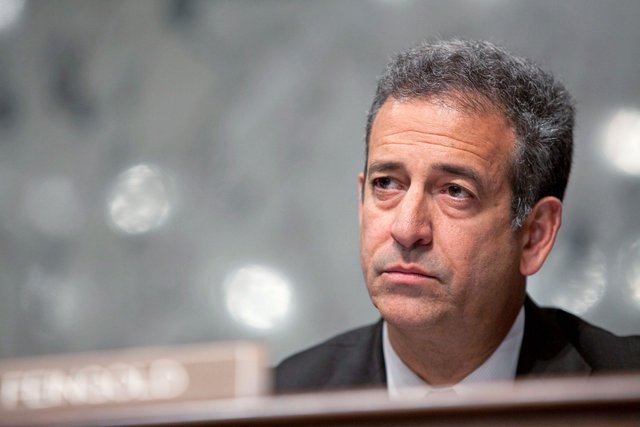“‘It’s the deepest kind of corruption,’ said a recently retired longtime national security official who was closely involved in the AIPAC investigation, ‘which was years in the making. It’s a story about the corruption of government — not legal corruption necessarily, but ethical corruption.” In a fascinating (and depressing) must-read, Congressional Quarterly‘s Jeff Stein lays bare a byzantine corruption scandal involving AIPAC, the Dubya WH, and Jane Harman, former Democratic chair of the House Intelligence Committee and, some grumbling aside, basically a “team player” for Dubya during the illegal and warrantless wiretaps episode. (Irony of ironies, it appears Harman’s misdeeds were caught on — a court-approved — wiretap.)
Talking Points Memo offers a handy timeline of the case here. Basically, on one level it’s your basic political quid-pro-quo. Harman told an unnamed suspected Israeli agent that she would “waddle into” a federal espionage case then extant against two members of AIPAC and gum up the works somehow. In return, “the suspected Israeli agent pledged to help lobby Nancy Pelosi…to appoint Harman chair of the Intelligence Committee after the 2006 elections.” (It didn’t take: Pelosi instead chose Silvestre Reyes.) “Seemingly wary of what she had just agreed to, according to an official who read the NSA transcript, Harman hung up after saying, ‘This conversation doesn’t exist.’“
Sordid enough. But what’s a mid-oughts scandal without the Dubya angle? After she had been caught on said wiretap, a federal investigation into Harman was approved…for awhile. But it seems Attorney General Alberto Gonzales now knew he had Harman in his pocket, and took advantage accordingly. “According to two officials privy to the events, Gonzales said he ‘needed Jane’ to help support the administration’s warrantless wiretapping program, which was about to be exposed by the New York Times. Harman, he told [CIA Director Porter] Goss, had helped persuade the newspaper to hold the wiretap story before, on the eve of the 2004 elections. And although it was too late to stop the Times from publishing now, she could be counted on again to help defend the program. He was right. On Dec. 21, 2005, in the midst of a firestorm of criticism about the wiretaps, Harman issued a statement defending the operation and slamming the Times, saying, ‘I believe it essential to U.S. national security, and that its disclosure has damaged critical intelligence capabilities.’“
Not that I need to remind anyone here, but Dubya’s use of illegal and warrantless wiretaps would, in more cases, be recognized as an impeachable offense. As it was, the Senate GOP (then in the catbird seat) held firm against hearings, and many of our congressional Dems — Feingold, Leahy, and a few other lonely souls notwithstanding — folded like a house of cards. Now, at least in the case of Harman, we know why.
Update: The NYT weighs in with their side, and it’s TLDR’ed by TPM. And Salon‘s Glenn Greenwald has a good bit of snarky fun with Harman’s recent “road to Damascus” moment regarding wiretaps.





